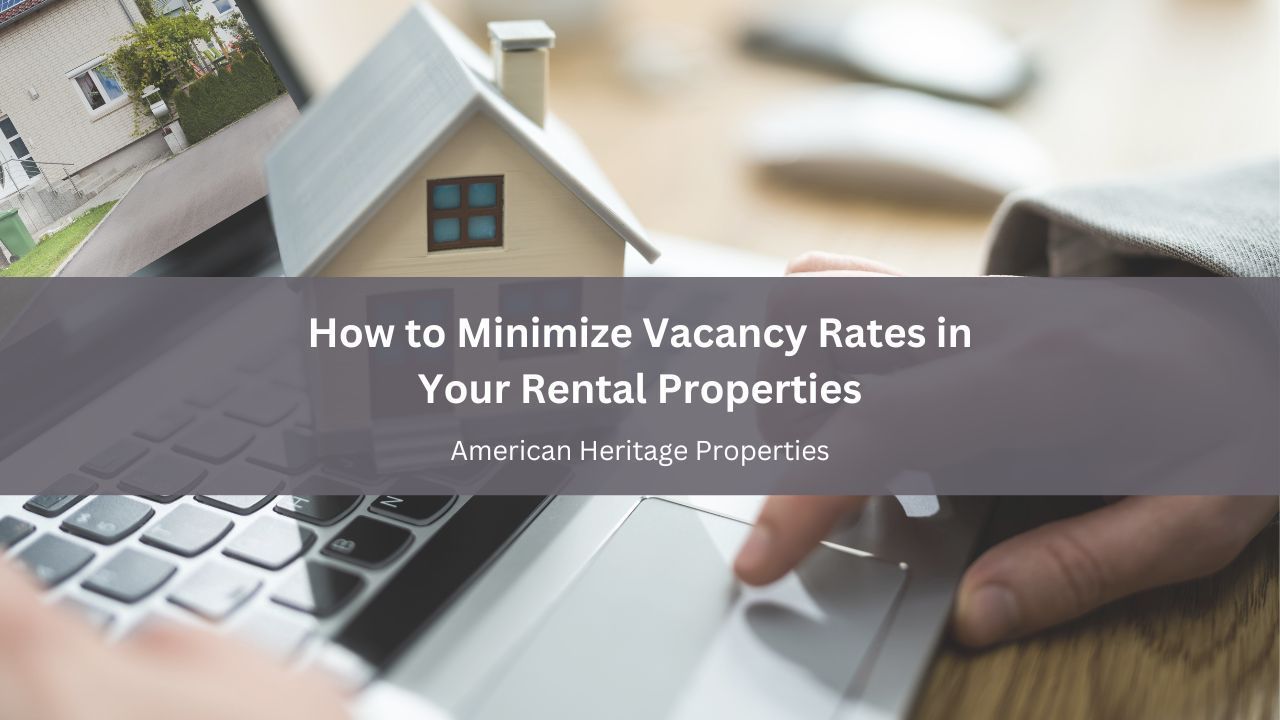How to Minimize Vacancy Rates in Your Rental Properties

Key Takeaways
- Prioritize Tenant Retention – Keep reliable renters longer by offering meaningful renewal incentives, implementing modest and predictable rent increases, and reaching out early to discuss lease renewals. This reduces costly turnover and avoids long vacancy periods.
- Screen Tenants Thoroughly – Use credit, income, background, and rental history checks to find financially stable, responsible renters who are likely to stay long-term. A strong screening process minimizes future vacancies and potential issues.
- Maintain Market-Ready Appeal – Regularly update and enhance your property’s appearance with small renovations, curb appeal improvements, and strategic marketing. High-quality photos, compelling descriptions, and wide online exposure help attract tenants quickly.
As a landlord or property investor, nothing hurts quite like seeing your rental sit empty. A period of vacancy doesn’t just mean zero rent, it can chip away at your profits through ongoing expenses like mortgage, insurance, taxes, and utilities. But how to do you prevent long vacancy periods and protect your returns? We at American Heritage Properties put together three practical strategies to reduce vacancy rates, and keep your properties occupied!
Streamline Lease Renewals to Keep Good Tenants
Turning over a tenant costs time and money, and each vacant day costs you revenue. It’s always smarter and more cost-effective to retain quality renters rather than repeatedly fill vacancies. Consider these three key steps to ensure tenant retention:
1. Offer Meaningful Incentives
In today’s cost-conscious environment, adding a few perks can go a long way in encouraging residents to renew their lease. This translates to stable income and steady cash flow.

Consider offering your tenants:
- Complimentary upgrades like new blinds, carpet cleaning, or accent wall painting.
- Private/ covered parking benefits.
- One time rent discounts or waving rent increases.
- Property renovations or appliance upgrades.
Though there may be short-term cost associated with these incentives, retaining a reliable San Diego tenant outweighs the expenses of turnover.
2. Take a Thoughtful Approach to Rent Increases
Raising rent is necessary, but it must be balanced with tenant goodwill. It’s best for perform modest, predictable year-over-year increases. This measured approach helps keep residents without sacrificing your competitiveness.
3. Reach Out Early About Renewals
Timing is everything. By contacting tenants well before their lease ends, ideally with incentives and an open line for special requests, you demonstrate that you value them and are proactive. Early engagement can smooth the renewal process and avoids surprises down the line.
Fine-Tune Your Tenant Screening for Better Matches
While retaining existing tenants matters, the foundation for lower vacancy starts before move-in with a reliable screening process. Elements of a diligent tenant screening process include:
- Credit checks to assess financial responsibility.
- Background checks for general information regarding the tenants.
- Income verification to ensure the tenant can afford the monthly rent payments.
- Rental history checks to confirm past reliability.
Screening thoroughly helps you find tenants who are less likely to cause issues or move prematurely, minimizing turnover and vacancy. Enlisting the help of a qualified property manager can also streamline this process and substantially reduce your vacancy risk.

They can also ensure that the screening process and all other aspects of your rental business comply with the federal, state and local Fair Housing Laws.
Keep Your Property Appealing and Market-Ready
Sometimes, the shortest path to reducing vacancy is through curb appeal and effective marketing. Start with small, aesthetic updates as they can make a big difference. A fresh coat of paint, updated fixtures, and tidy landscaping elevate your California property’s appeal and can draw more inquiries. Next, consider upgrades like energy-efficient shower heads, stylish lighting fixtures, or even new exterior doors to add functional and visual value. These not only attract higher-quality tenants but also often lead to shorter vacancy periods.
Finally, even well-maintained rentals will remain empty if nobody knows about them. As such, use professional photos, compelling property descriptions, and list available units across multiple platforms to ensure you reach the widest possible audience.
Make sure you highlight your properties best features and provide multiple contact options.
Putting It All Together
Reducing vacancy rates isn’t about a single tactic, it’s about combining thoughtful tenant retention, strategic screening, and property appeal under a well-executed marketing plan.

Here’s the breakdown:
- Lease Renewals - Offer incentives, small rent increases, and perform early outreach. This helps keep quality tenants longer and avoids the stress of re-renting the space.
- Tenant Screening - Perform credit, income, background, and rental checks on all perspective tenants. This helps ensure that you’re only renting to the most quailed, long-term tenants.
- Property Appeal - To enhance your rental perform property renovations, upgrade the curb appeal, and perform strategic marketing campaigns. Doing so will help you draw in tenants and increase long-term value.
The Benefits of Working with a Property Manager
If all of this sounds daunting, considering the benefits of hiring a professional property management company. They have the team and resources necessary to effectively managing your residential rental properties. They’ll perform tenant screening, rent collection, marketing, leasing, maintenance and more on your behalf. A quailed property manager can also ensure that your rental business complies with all landlord-tenant and Fair Housing laws. This further protects your investment and professional reputation.
Bottom Line
Vacancies are an inevitable part of the rental business, but they don’t have to drain your profits. Whether you manage a single unit or an entire portfolio, you can dramatically reduce downtime and protect your rental income by applying three core strategies: treat good tenants like valuable customers, screen applicants carefully to avoid turnover, and keep your property market-ready at all times. These steps ensure you’re attracting and retaining the right renters while minimizing costly gaps between leases.
If you need help implementing these strategies, you also partner with a trusted property management company like American Heritage Properties. We’re dedicated to helping you maximize your return on investment. Contact us today to learn about our reliable property management services!









